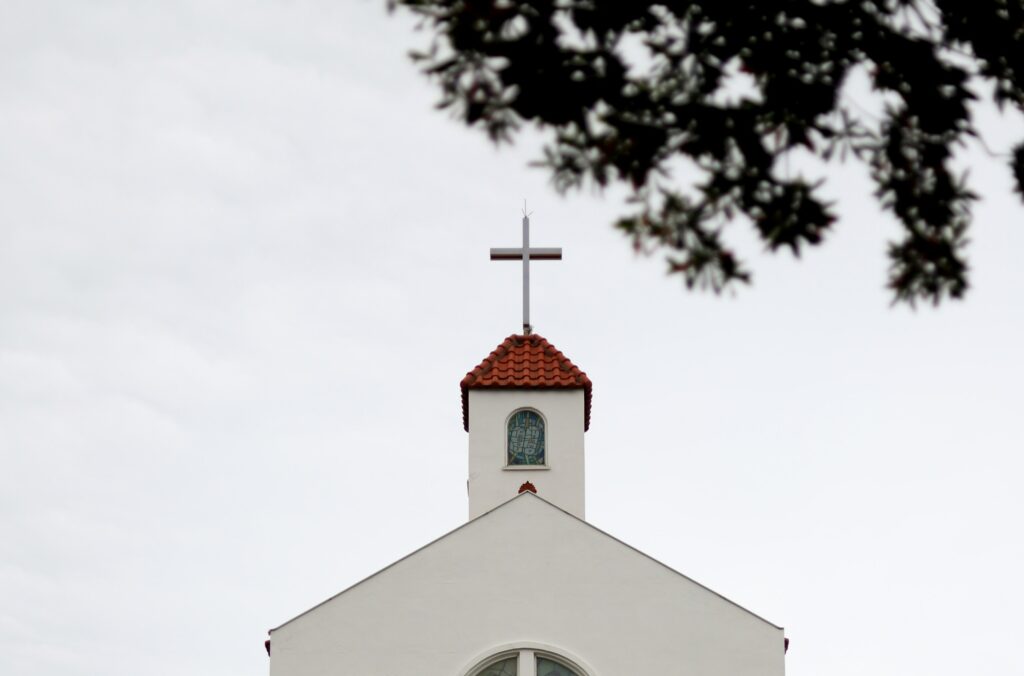
And then we turn the page, to the New Testament. And in its first words, we meet “Jesus Christ, the Son of David, the Son of Abraham.” And before the end of the first chapter we learn that He is more than that: He is the Son of God as well. God is again stepping into the world he created, this time to fill our cravings.
In the next few pages we learn that Jesus, the Christ, is someone we already know: He is the Son, who in the beginning was face to face with the Father, who made all things, who had tenderly breathed life into His very first image, which He had formed with His own hands. Now these hands touch the sick and heal them; they touch the eyes of the blind and give sight; they touch a few loaves and fish and feed thousands; they touch the dead and bring them back to life. Why should we be surprised? Our first life was from Him, and it is nothing to him to give life again.
All the while His eyes are fixed on His larger purpose in becoming one of us. He sets His face like flint; He goes to Jerusalem; He leaves His hands at His side as evil men slap and strike Him, and then He extends those hands to receive the nails that will pin Him, with the wicked, to a cross long enough for His blood to be shed, so that He can freely deliver His own spirit back to the Father.
It is finished. But it is not over.
The Son, who created the first human life, recalls His own, steps forth from His tomb, with the rich, as victor over both sin and death, and returns to His place beside the Father.
And He continues to speak, through men He has carefully selected while He walked among us. They begin to explain what it all means, and in their writings we learn that, as we have begun to suspect, Jesus, the Christ, is the Prophet, the Priest, and the King, all in one. And He is not disappointing, because He is not broken like Adam’s other descendants. He is the answer to our cravings, cravings that God Himself evoked in us by giving us the Tanakh.
He is our High Priest, perfect mediator of a perfect sacrifice, offered once forever for the sins of all who will come to Him for free forgiveness.
He is our Prophet, the Word become flesh, through Whom we see clearly the Father’s glory, so that if we have seen Him, we have seen the Father.
He is our King, the Son of David, the Lion of the tribe of Judah, the One to whom Judah’s scepter belongs, whose kingdom shall have no end.
He is the Lamb of God, slain from before the foundation of the world. God’s plan has come to fulfillment perfectly, with no missteps, no mistakes, no frustrations, no setbacks.
_____
“Worthy are you, our Lord and God, to receive glory and honor and power, for you created all things, and by your will they existed and were created” (Re 4.11).
“Worthy are you to take the scroll and to open its seals, for you were slain, and by your blood you ransomed people for God from every tribe and language and people and nation, and you have made them a kingdom and priests to our God, and they shall reign on the earth” (Re 5.9-10).
“Worthy is the Lamb who was slain, to receive power and wealth and wisdom and might and honor and glory and blessing!” (Re 5.12).
“To him who sits on the throne and to the Lamb be blessing and honor and glory and might forever and ever!” (Re 5.13b).
“Amen!” (Re 5.14b).
Photo by Greg Rakozy on Unsplash


